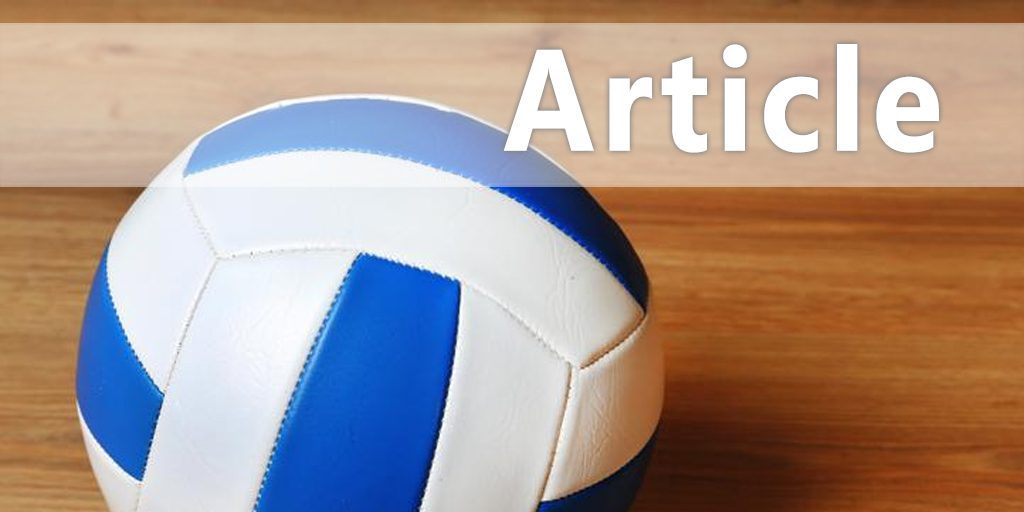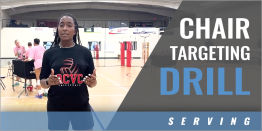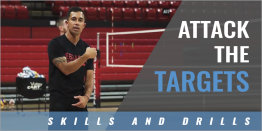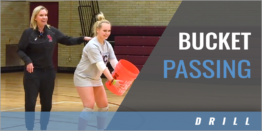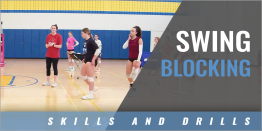|
By: Don Shaw - Head Volleyball Coach (Retired) - Stanford University (Paolo Alto, CA) Originally published in: Coaching Volleyball Magazine Provided By: AVCA
When I coached the women's volleyball team at Stanford University, many people automatically thought that as a coach you just recruited the best athletes, you rolled out the balls, and, if you're smart, you stayed out of the way. In some cases you are smart if you stay out of the way, but there's a lot that goes into it. To me, what's important is coaching. We all coach at various levels; coaching is coaching. You can have the different levels of technical and tactical aspects of the game. Last fall I ended up watching a lot of high school matches. It gave me a whole different perspective, but it reinforced my ideas that every coach has their problems, every coach has their issues. Nobody can sit and say, "Oh, that guy doesn't know what he's talking about, he just has all the best athletes." If you have athletes, you have to deal with problems no matter what level you're at. You may see these great players, but you always have something big you have to deal with. You're coaching elite-level athletes. There are a lot of issues involved. You could have players that could be unbelievably good athletes. You recruit for a lot of different reasons. Contrary to popular belief, Stanford University does have to work at recruiting. There are a lot of issues involved when you're looking to have a championship team. You can't go out and just recruit the 12 best players. There are a lot of teams out here that people say, "Oh, this team is loaded from top to bottom." You have players that have a tremendous reputation coming in as recruits to your program. Many pay attention to their high school accolades. In all actuality, Volleyball Magazine's "Fab 50"...well that's just the kiss of death for about 40 of those 50 girls. Why? Because they're entering your program already with incredibly high expectations, and you just don't know what you're going to get. Some kids are in high school, and at the junior level they're outstanding. They get to that next level, and they have short-comings that they can't overcome. Sometimes we see things like, "Oh, she has a funky arm swing. We can change that." Well in most cases you can't, and if you do she's probably going to end up with shoulder trouble. When dealing with recruiting, as coaches we look for the best athletes out there, at the highest level. One of the key things from the coaches' level, is that you have to be pretty self-confident. Some people are going to think you are arrogant. Some people are going to think you're aloof. But you have to have confidence in what you do, because a lot of these kids are athletes that have played in very high levels of Olympic development. So, as a coach, you've got to be pretty confident and get your point across, so that those kids can respect you for who you are. Everyone wants that "make-or-break" player. For Stanford it was Kim Oden in 1981-82. We had a very competitive little group of kids. They were feisty, played hard, but just couldn't quite beat any of the top teams. The top recruits wanted to play for USC or UCLA back in those days. We put a great team together. We finally got Kim. She made a huge commitment to leave Southern California, go to Stanford and take a chance. We earned a spot in the NCAA Semifinals for the first time in 1982. At that Final Four, the coach for the U.S. Women's National Team was in attendance. He came to me and shared his thoughts that we might not have the most talent on the court, but we were the most organized team. That's all I needed. I realized at that moment, "Hey, we're doing something right here." From that point, as we went out and recruited, that coach's words to me became a tool for my recruiting efforts. We told the prospective players what this person said about our team. Eventually, you get that break through player that gets you to another level, and you still have to have confidence in what you're doing. You have to be organized and you have to know what you're doing. Getting those top recruits is really important. When trying to land recruits, we don't all aspire to the same goals. Everybody is looking to get to the NCAA Championships and win a national title. There are certain levels of tactical technical. An interesting thought of mine: Coaches talk about getting that break through player, but you have to be careful of what you ask for because you might get it. What I mean by that is, you might get this outstanding player, but is this kid going to be the kind of player that's going to make your team better all the way around? The public perception is that everybody thinks this player is great. What's truly scary now is the internet. Now these kids are on the internet, and it's amazing the stuff the public can find about them. It's scary to me. It ends up becoming all about what the public perception of those big-time players is. That is an issue that needs to be dealt with, if you have a top-level player coming into your program. After time, the kids' egos start to grow. Now, let's talk about parents...I am one of those now. If my kids decide to play a sport, I want them to be the kind of kids coaches want to have on their team, regardless of how good they are, if they're a starter, a good player, or just a back-up. I just want the coaches to say, "Whew, I don't have to worry about that one!" That is a critical point. What I always looked at was work ethic, and how these potential star players interact with the rest of the team. Does she scare the other kids on the team? Does she intimidate them like crazy? There are a lot of players like that out there. Or does this kid just make everyone around them better and has a little better perspective on things? It's hard to find one like that, on any team. If you can find that kid who is both the leader on the court and also that kind of person, now you've got someone that is really going to help your program and help build your team be successful. There are a lot of kids out there that coaches like having on the team, but aren't that upset to see them go when they graduate. Onto the next issue: Communication. Back in 1991 there was a rift that had grown between some key players on my team. Once I found out, I needed to know what was going on before it got to a bad point. You see teams perform in the NCAA Championships, and they're talented teams. Every year there is a team that people think, "How can they lose with that talent?" Well, it's probably something that is going on beneath the surface, and it's probably something that either the coach can't control or has a hard time with. Its funny how people have perceptions of how great these teams look like they could be, but there is something going on that just doesn't quite work out. Those are issues you'll have to deal with when you're trying to coach great players and a great team. Communication for me was like, "Ok, I need to make sure this never happens again." So I went out enlisted the help of a fan that followed the program who happened to be a clinical psychologist. I got the team together and had a little retreat and the beginning of each year. We would get issues out in the open and get people to communicate with each other within the team. We were able to eliminate those kinds of deals. We did the Myers-Briggs test. We graded it, put the parts together, and then we sat around in a circle, went around the room and everybody read their own profile. It helps solve a lot of perception issues among the team. The communication issue is one thing that I took care of as the coach. It's just one thing that stuck out in my mind that was a turning point for our program. Another issue, to me, was team chemistry. I fell into a trap, one year, where I looked at our line-up and thought "Ok, in order for us to win the national championship, this is the line up I have to have on the floor." But we had one player that the other players couldn't count on. They couldn't trust her. She was one of those players that would bag out of conditioning; something would come up. She had just lost the trust of her teammates. But here I am thinking beyond what I should've been thinking of. I'm thinking of winning the whole thing. I got caught up in that trap as opposed to thinking of how my team best functions. Instead I was thinking of the X's and O's, the black and white. I was thinking this is the line up I need to have. So I kept playing this kid. I kept thinking if she plays well, we're going to win. Well she let us down, and I hadn't done any damage control before that Final Four. When we started offseason training in January, the first thing I did was have a meeting with the team. The team had lost respect for me because of what I did. So I had to sit them down and apologize. That was something that wasn't very easy for me to do at that point in time. After already having won a couple of national championships and being pretty high on myself, I just had to say it for the team..."my fault." I told the remaining players that this was their team now. It was a case of me kind of selling my soul to the devil. I had to think I had the best line-up on the floor, but when it came down to it I kind of sold out to a talented player over maybe a less talented, hardworking, better teammate. That was another huge lesson I had learned in putting together a great team. The next team, after we lost that year, won two championships in a row. We had a team that really got along well. Key Points: Leadership.You have to have good leaders and it doesn't necessarily have to be your stud. I had some great captains and leaders, and that to me is the most important. It's great to have players that understand where the coach is coming from and maybe can explain that to a player that doesn't understand it so it's not coming from the coach. It's like talking to your kids. Your kids aren't going to listen to you, you're their parents. I pick a captain that's not afraid to tell someone what they need to hear, as opposed to what they want to hear. Captains and leaders are key to a successful team at whatever level. Competitive spirit: You have to have that with your team. A coach just called me and said, "I just don't know how competitive my team is." I watched them in the regional finals and they looked pretty competitive to me. You, as their coach, know them day-in and day-out, and I think that's just kind of a general comment of an athlete of today more than anything. I wonder how competitive kids are compared to how they were back in the day. I've watched my kids. My son plays club volleyball, along with a ton of other sports, and he's a pretty good athlete and player. It looks to me like these kids on his team have failed in every other sport they've tried, so they decided, "Well, volleyball won't cut me, so I'll go try out for that." My son is out there going crazy because he's a mini-me. Believe me as a dad, it's crazy. I have a hard time watching. You just have to hope they're having a good time, and later on they'll learn a lot from it. One of my goals always was day-to-day improvement. When we sat down and made goals at the beginning of the year with the Stanford women, sure you want to win the national championship. My goal was always to be the most improved team from the beginning of the season to the end. I want you to learn something today that you didn't know yesterday or improve something you didn't do as well yesterday. If everybody on the team does that, we could be really good. That always a huge thing for me. The bottom line was always team. Everything is done with the team at the top of the priority list, no matter what you do with your life when you're part of that team. In my case, I made sure that players knew that's what I did. Every decision I made was in best interest of the team. It had nothing to do with my personal feelings. If I have personal problems with somebody, I'm going to talk about those personal problems. They need to understand that whatever decision I make, roll with it. If I pull you out and stick someone else in there, if it's kind of an unusual circumstance, I'm going to try to give them a reason why I did what I did. Whatever the case may be, the communication is there. They understood that everything we did was with the team and at the top of the priority list. Hopefully, that star player kind of gets the idea with everybody else. They get a little bit of perspective if they don't already have it.
About the Author... One of the top coaches in collegiate volleyball history, Don Shaw established Stanford University as a national powerhouse in his 26 seasons coaching both men's & women's teams. Don was inducted into the American Volleyball Coaches Association Hall of Fame as part of the class of 2008.
|
